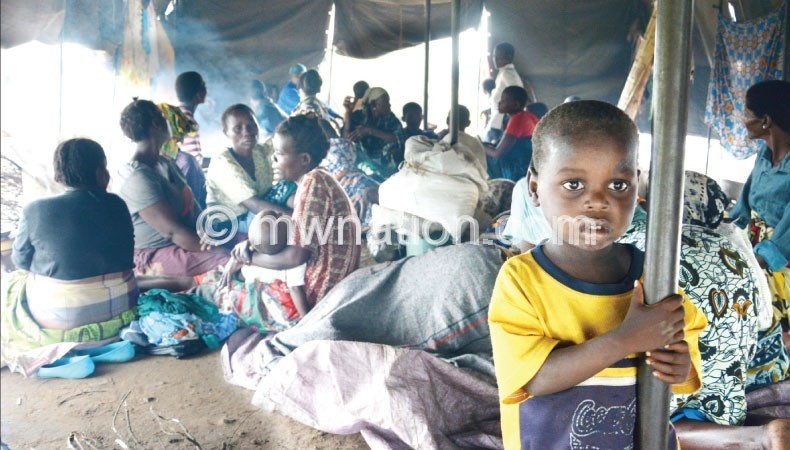Floods worsen poverty in Ntcheu
Even before the devastating floods, Aida Marko, 39, from Chawanje Village in Ntcheu had enough problems to worry about. Losing her house and a promising crop to floods worsened her situation.
Marko, a single mother struggling to raise her seven children, survives on piece work in farms.
 Her first born is in secondary school at Bwanje, about 12 kilometres away from her home. The next five children are in primary school while the last born is yet to start school.
Her first born is in secondary school at Bwanje, about 12 kilometres away from her home. The next five children are in primary school while the last born is yet to start school.
Before Marko’s husband left her, he built a grass-thatched house in which she and her children have been living. But the recent floods that affected many parts of Malawi, including Chawanje Village, destroyed it.
Fortunately, she and her children were not in the house when it collapsed. A well wisher, who had noted that the mud wall had softened after heavy rains fell on it, advised her to vacate the house. She took heed of the advice because two days earlier, a house of a 70-year old widow, Nameletsa Bisiwasi, had collapsed just some 250 metres away.
“We relocated to a boys quarters (mphala) used by my oldest son, who is at boarding school. As you can see, it is a small house meant for one person. It has no bedroom. This is the house that my six children and I are now living in,” she explained.
In villages, grown up boys move from their parents’ house to live in their own small houses close by, called mphala. The boy’s quarter that Marko and her children are occupying now is the house that Marko never used to enter. It is uncommon for a mother to enter amphala, except in emergency situations and this year’s floods are the biggest emergency that the country has encountered in many years.
“Now my worry is that we will have nowhere to stay when my son returns from school. He might let us live in this house but where will he stay?” she complained.
The floods did not spare Marko’s maize field. The field, which has been her main source of food, now has flattened ridges and exposed roots, with most of the crop washed away.
Her livelihood is now at stake because not only is her own field ruined, but the farms where she goes to do piece work are in the same condition.
“During the farming season, I do some piece work to earn money. But not many people are looking for farm labourers now because they have lost their crops to floods as well. The little money that I get from doing piece work in other people’s farms is what I would use to buy food,” said Marko.
Currently, Marko and her children are assured of food on the table. She received food to last six weeks from Care Malawi. The food is part of flood disaster response coordinated by the United Nation’s World Food Programme (WFP).
The challenge that Marko faces now is to recover from the loss of the house and crops. While she is assured of food on her table in the short-term, she also needs to be assured of food for a longer period and a decent shelter for her family.
Care Malawi will soon start distributing planting materials such as sweet potato vines and cassava cuttings to families affected by floods in Ntcheu, which will allow Marko and others to get their lives back on track.
*Innocent Mbvundula is communications coordinator for Care Malawi





